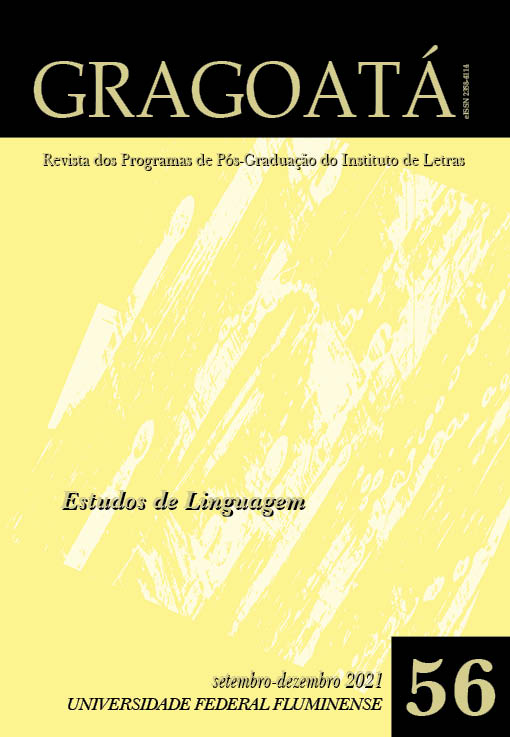Language education in english as an aditional language in Brazil: overcoming the colonial practices of teaching english as a foreign language
DOI:
https://doi.org/10.22409/gragoata.v26i56.49691Palavras-chave:
Educação Linguística, Inglês como Língua Adicional, Ensino de Inglês como Língua Estrangeira, Pedagogias CríticasResumo
Tanto a Grã-Bretanha quanto os Estados Unidos vêm, já há bastante tempo, implementando, de forma deliberada, políticas que visam a levar a aprendizagem do inglês a países de todo o mundo, como forma de expandir sua influência cultural e ideológica através do globo. Todo o dinheiro investido em institutos culturais e do idioma, material didático e formação de professores sempre esteve associado a esse objetivo (PHILLIPSON, 1992; MOITA LOPES, 1996) e promoveu o desenvolvimento de uma poderosa indústria de ensino de inglês como segunda língua ou como língua estrangeira para virtualmente todos os países do planeta. O presente ensaio discute as implicações ideológicas das práticas hegemônicas de ensino de Inglês como língua estrangeira nos países do terceiro mundo em geral e, mais especificamente, no Brasil. Ele também propõe um enquadre alternativo para o desenvolvimento de práticas educacionais com o objetivo de facilitar a apropriação da língua inglesa por estudantes brasileiros. Apropriar-se da língua, de acordo com a perspectiva adotada neste ensaio, significa que os estudantes devem se tornar capazes de utilizá-la nos seus próprios termos, de acordo com suas próprias necessidades e valores e, acima de tudo, para seus próprios propósitos. Essa é a intenção da proposta de se substituir “Ensino de Inglês como Língua Estrangeira” por “Educação Linguística em Inglês como Língua Adicional”.
Downloads
Downloads
Publicado
Edição
Seção
Licença
AUTORIZAÇÃO
Autores que publicam em Gragoatá concordam com os seguintes termos:
Os autores mantêm os direitos e cedem à revista o direito à primeira publicação, simultaneamente submetido a uma licença Creative Commons Atribuição 4.0 Internacional (CC BY 4.0), que permite o compartilhamento por terceiros com a devida menção ao autor e à primeira publicação pela Gragoatá.
Os autores podem entrar em acordos contratuais adicionais e separados para a distribuição não exclusiva da versão publicada da obra (por exemplo, postá-la em um repositório institucional ou publicá-la em um livro), com o reconhecimento de sua publicação inicial na Gragoatá.
A Gragoatá utiliza uma Licença Creative Commons - Atribuição CC BY 4.0 Internacional.











